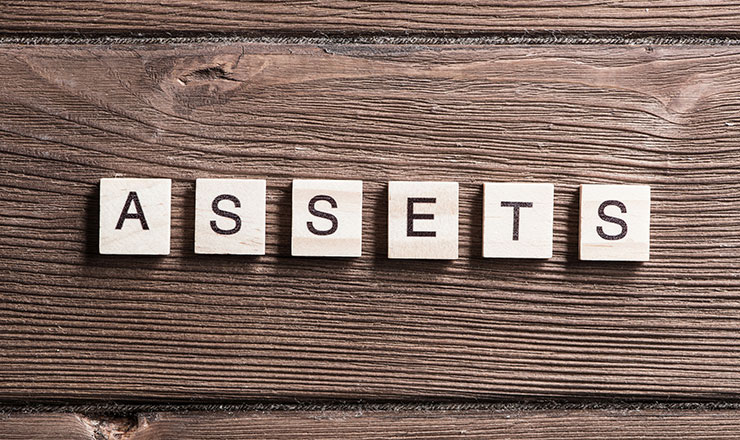Understanding the Importance of Fixed Asset Depreciation

Take Control of Your Assets
A personalized demo is just one click away.
In any organization, the management of assets plays a crucial role in maintaining financial stability and operational efficiency. But there’s one crucial factor that could significantly impact your bottom line—fixed asset depreciation, a process that allows businesses to account for the gradual reduction in value of their tangible assets over time.
Overlooking this essential accounting practice means missing out on valuable tax savings and accurate financial reporting. Properly calculating and tracking fixed asset depreciation not only ensures compliance with accounting standards but also provides important insights for budgeting, tax deductions, and financial forecasting.
Is this an opportunity you haven't fully explored yet that could result in significant tax savings for your business? Don’t underestimate the value of properly managing depreciation for your assets.
What Is Fixed Asset Depreciation?
Simply stated, fixed asset depreciation is a gradual reduction in the value of long-term physical assets such as machinery, vehicles, buildings, and equipment due to wear and tear, aging, or obsolescence. This process allows businesses to allocate the cost of these assets over their useful lifespan rather than recognizing the full expense upfront.
By recording the depreciation of fixed assets on financial reports, businesses can more accurately reflect the declining value of their assets while benefiting from tax deductions. Properly recording fixed asset depreciation ensures compliance with financial regulations and provides a clearer picture of a company's actual asset expenses over time.
Key Considerations When Calculating Depreciation of Fixed Assets
Depreciation is a crucial factor for businesses to consider when managing fixed assets. It helps companies accurately account for the decreasing value of an asset over time.
There are several factors that influence how depreciation is calculated:
- Useful Life: This refers to the expected period during which an asset will remain productive for the company. Depreciation is calculated based on this time frame, reflecting the asset’s gradual decrease in value as it is used.
- Salvage Value: When a business disposes of an asset, it may sell it for less than its original cost. The difference between the sale price and the original cost is the salvage value. To calculate depreciation, the salvage value is subtracted from the asset's initial cost.
- Depreciation Method: There are two main methods for calculating fixed asset depreciation.
- Straight-Line Method: Spreads the total fixed asset depreciation evenly over the item's useful life, making the calculation straightforward.
- Accelerated Method: Results in higher depreciation expenses in the early years of the asset’s life, which can offer tax benefits by deferring some income tax liability.
Read More: How to Audit Fixed Assets
Why Is Fixed Asset Depreciation Important?
From up-to-date financial records to long-term planning and budgeting, properly recording the depreciation of fixed assets is essential for any organization. Here are 4 key examples of the importance of fixed asset depreciation.
1. Accurate Financial Reporting
By systematically recording fixed asset depreciation, organizations can maintain precise financial statements that reflect their true financial position. This accuracy is necessary for organizations that follow the Generally Accepted Accounting Principles (GAAP) and crucial for stakeholders, investors, and decision-makers who rely on these reports to evaluate business performance
2. Tax Benefits
Depreciation of fixed assets provides valuable tax advantages. By claiming depreciation expenses, businesses can reduce their taxable income while accurately reflecting the decreasing value of their assets. This practice helps organizations optimize their tax position while maintaining compliance with regulations.
3. Improved Decision-Making
Understanding how fixed assets depreciate over time enables better long-term financial planning. Organizations can anticipate when assets might need replacement and budget accordingly, preventing unexpected capital expenditure requirements and disruptions in business operations.
4. Enhanced Asset Management
Tracking fixed asset depreciation helps organizations monitor asset performance and utilization throughout their lifecycle, allowing for better maintenance management. With full historical records, businesses can identify underutilized assets, optimize resource allocation, and avoid costly downtime.
5. Benefits of Fixed Asset Depreciation
Depreciation is more than just an accounting practice—beyond its importance, fixed asset depreciation offers tangible benefits that can significantly impact a business’s financial health. These benefits include:
- Accurate Expense Reporting: Depreciation ensures that companies properly record expenses incurred from using an asset while comparing that to the revenue generated. Without fixed asset depreciation, businesses risk overstating or understating total asset expenses, leading to misleading financial information.
- Correct Net Book Value: Businesses often report the original purchase cost of an asset, but its actual value declines over time due to wear and tear. Depreciation helps companies calculate an asset’s net book value by subtracting accumulated depreciation from the purchase price.
- Cost Recovery: Depreciation enables businesses to allocate the cost of an asset over its useful life, rather than deducting the full amount in a single expense. This approach helps businesses recover the asset’s cost gradually, making financial planning and future asset replacement more manageable.
To accurately report an asset’s depreciation, businesses must maintain invoices for proof of purchase and payment, along with documentation of applicable sales tax. Depreciation is calculated at the end of the fiscal year for tax reporting purposes.
However, not all items are eligible for depreciation. Items with a short lifespan or low cost (often referred to as current assets) may not qualify. Additionally, land and personal-use items are not subject to depreciation, though assets used for both business and personal purposes (such as vehicles or computers) may qualify for partial depreciation.
Read More: How Much Does a Fixed Asset Depreciate?
Start Tracking Fixed Asset Depreciation with Asset Panda
Managing depreciation effectively requires the right tools. Asset Panda’s comprehensive asset management platform simplifies the process, ensuring accuracy, compliance, and efficiency. With automated calculations, customizable reporting, and seamless integration, businesses can stay on top of their fixed assets with ease.
Our solution helps you:
- Automatically calculate depreciation using various methods
- Generate detailed depreciation schedules and reports
- Track maintenance history and costs
- Plan for future asset investments
- Maintain compliance with accounting standards
Don’t let fixed asset depreciation become a burden on your organization. Asset Panda provides the tools and insights you need to optimize your asset management strategy. Schedule your demo today to learn how Asset Panda can help improve your overall asset management efficiency.
Take Control of Your Assets
A personalized demo is just one click away.
Related News & Press

Learn more from an Asset Panda expert
Get a FREE consultation with an asset tracking expert to find out how you can transform your asset tracking.
Contact our Sales Team at (888) 928-6112


